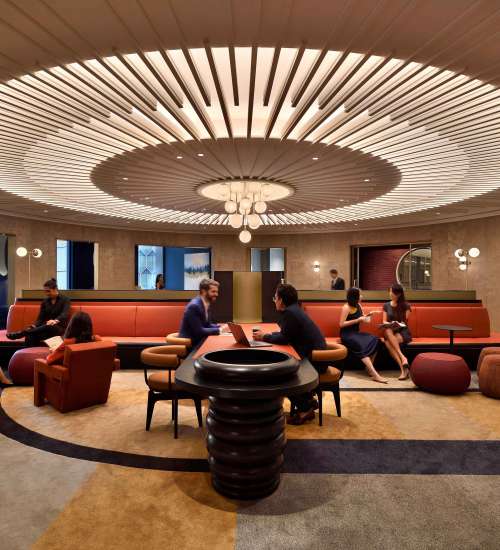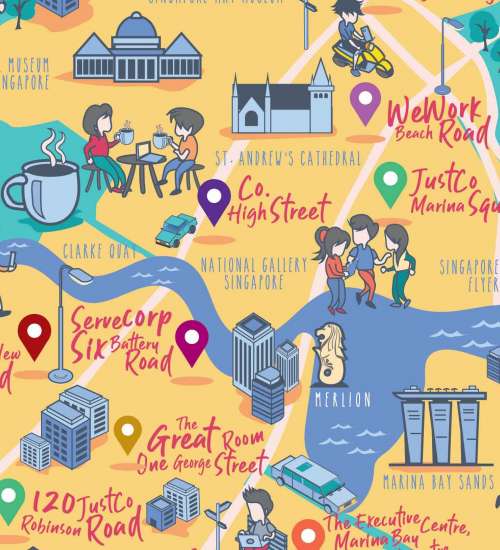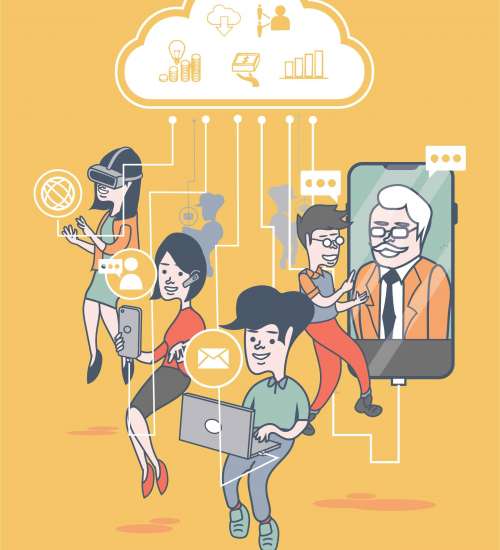Colliers International’s 2019 forecast on flexible workspace trends says co-working operators will no longer exist in a silo, but will become an integrated part of the building fabric with holistic offerings that a landlord can asset-manage efficiently while the operator curates the user experience, Mr. Junny Lee, Founder & CEO of The Work Project, a co-working space operator, tells me. “These could include the addition of food and beverage outlets, as well as wellness facilities within the co-working space.”
Mr. Lee knows this is not an imagined a scenario; co-working operators are working on the double to deliver new products and services for existing and prospective occupiers. At The Work Project, he has already launched MARK, a brand-new C-suite business club offering business leaders exclusive access to sophisticated and luxurious environment including functional private rooms, dedicated boardrooms, and spaces for hosting exclusive events.
As can be expected, MARK is elegantly fitted with the finest range of designer furniture custom-made by Pierre Frey. More importantly, the club provides members-only access to The Work Project and CapitaLand's exclusive C-suite community of some of the most successful and influential blue-chip corporations, professional services and high growth companies, triggering opportunities for networking and collaboration across industry.
With both demand and supply of new co-working spaces still on the rise, we can count on a few more surprises ahead of us. The curated members’ events and the Friday after-office mixers have become standard items on the co-working experience.
Affordability and flexibility, together with access to facilities and services, continue to attract new members who are clearly there for the community as well. “Nobody just sits at their desks hammering away at their computer,” says a former member of a Singapore co-working space, “The networking is real, and it gives us incredible connections and business opportunities.”
The rise of co-working spaces reflects the transformation of the workplace on the whole. Technology allows operators and occupiers to set new workplace standards, while people themselves challenge the definition of gainful employment.
“While a necessary evil for some people, a large portion of our days is spent in the workplace,” says Mr. Thijs Willems, a research fellow at Lee Kuan Yew Centre for Innovative Cities (LKYCIC) at the Singapore University of Technology and Design. “Technological developments over the past decades have certainly made the workplace, at least for many of us, a more bearable place. Instead of the damp and dimly lit factory floors with the revving sound of greasy machinery and equipment, many of us now spent our working days in flashy offices with the latest gadgets and a top-notch Italian espresso machine for the daily dose of fuel – for some, this even comes with a barista brewing coffee in all the varieties imaginable.”
LKYCIC Director Mr. Poon King Wang visualizes the future of work to be “one where there is much social learning among colleagues, which can be structured or unstructured. We will need to start thinking about how to design workspaces for such social learning that complements but also goes beyond social interactions.”










 Back
Back
